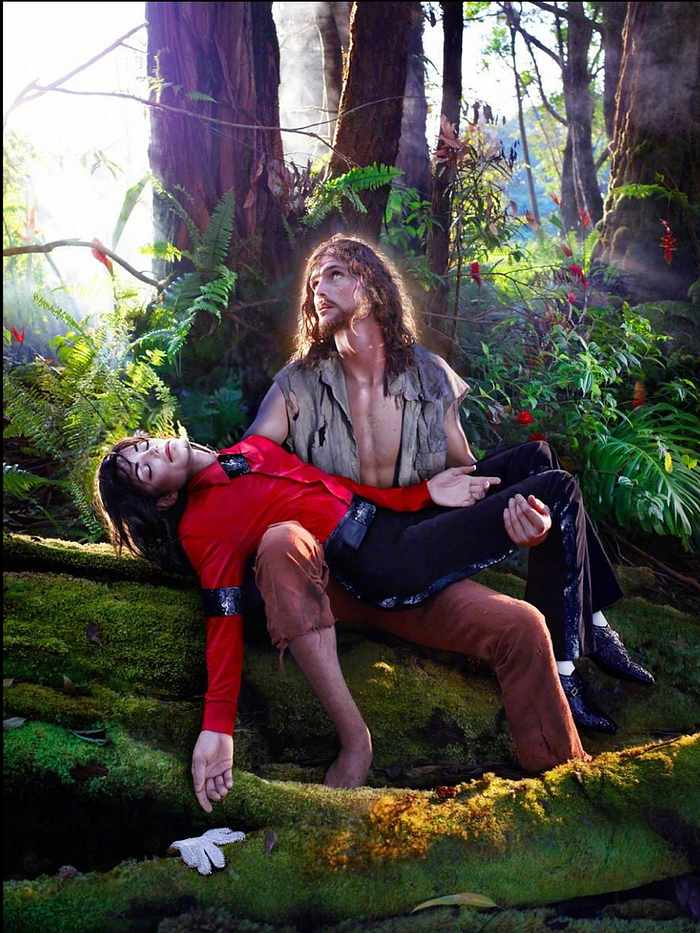Member-only story
#LeavingNeverland isn’t a documentary. It’s a work of fiction.
In an era of flat-earthers, scripted reality shows, consumption overload and “fake news”, wherein lies the truth about the King of Pop?
Certainly not in Leaving Neverland.

3 decades ago, Michael Jackson reached the apex of fame, when the success of Thriller turned Michael Jackson into the most famous man who ever lived. It’s no coincidence that it was during this time-frame that Michael penned a song entitled The Price of Fame, in which he lamented:
I want a face no one can recognize, in disguise
Someone called out my name
They thought of taking pictures, autographs, then they grab
My joy has turned to pain
You see, the real price of fame is the commodification of your very existence. This is the real Faustian pact, brought into the modern musical era first by Robert Johnson, but exemplified by the ultimate rags-to-riches story of the young talented black boy from the poorest ghetto of the United States.
Rags-to-riches might be the feel-good story, yet it isn’t the great American Dream. The end-game of industry is, of course, a structure in which you can continually amass wealth, clicks, views, attention, or whatever your heart desires by doing as little as possible. It should be clear by now that attention, and not work, is what drives the current inhabitant of the White House, to give but one example.
It is ironic to address this when it comes to Michael Jackson. If James Brown was “the hardest working man in show-business”, then Michael Jackson and Prince Rogers Nelson, both born in the mid-west in the Summer of 1958, were both his star students, not just musically but also within their tireless work-ethics. But look around the people who, in the words of Prince are “willing to do the work”, and you’re sure to find significantly more people figuring out ways to capitalise on it. Some of these relationships can be mutually beneficial, or at least begin that way. If we consider Michael Jackson’s relationship with MTV in the age of the music video, it is nigh-impossible to say who benefited more. But this was a direct relationship. Artists require promotional mediums, and promotional mediums require artists. It is not complex mathematics.

